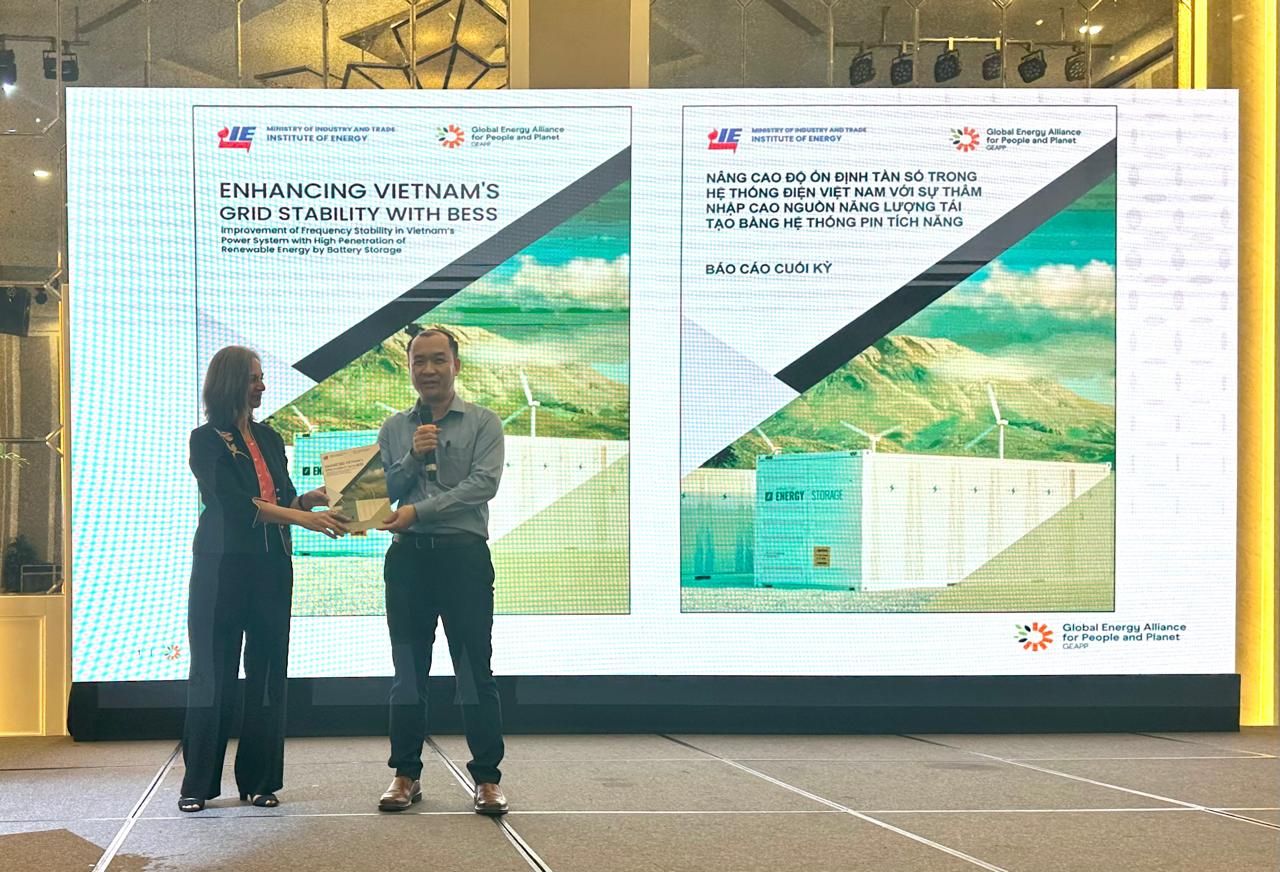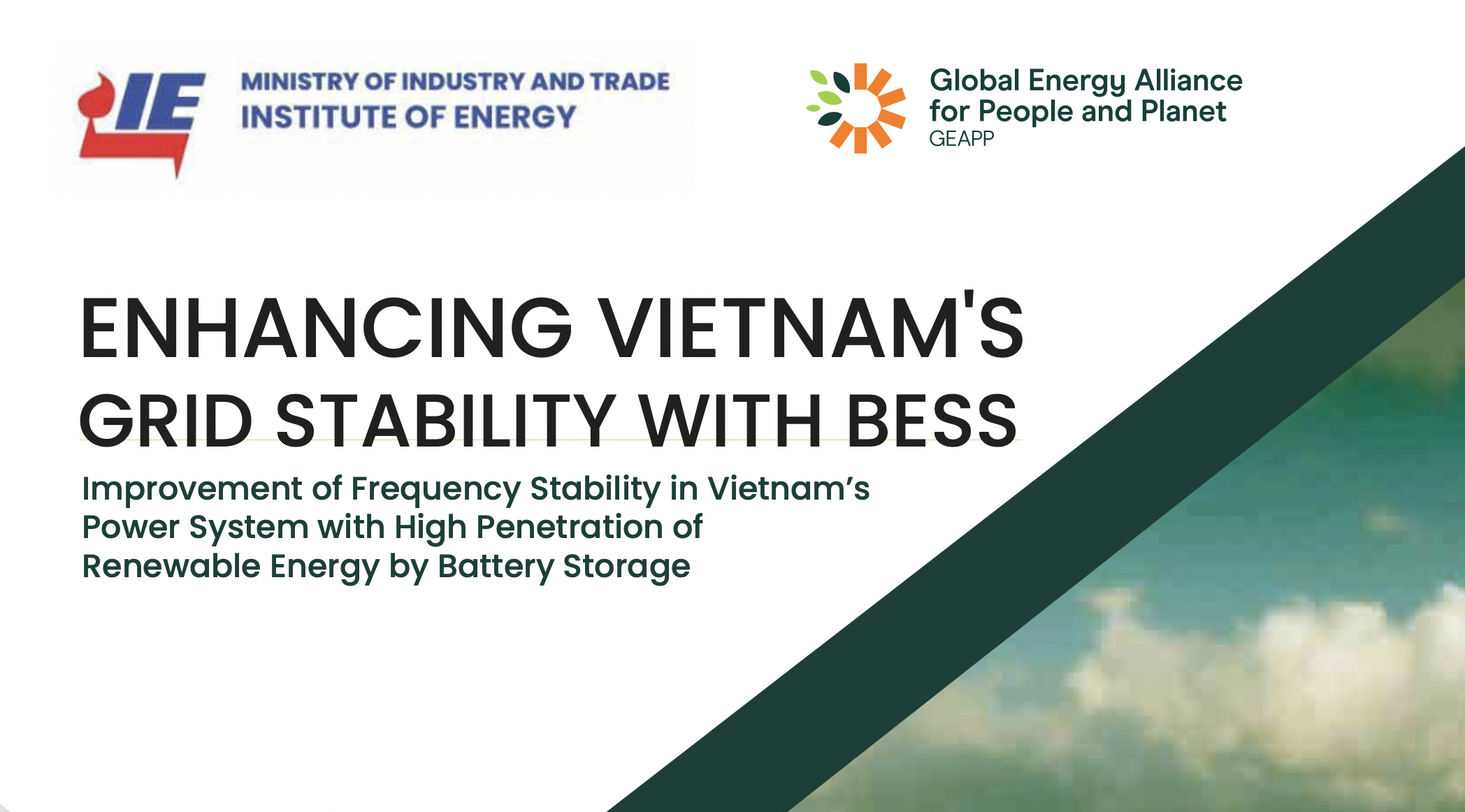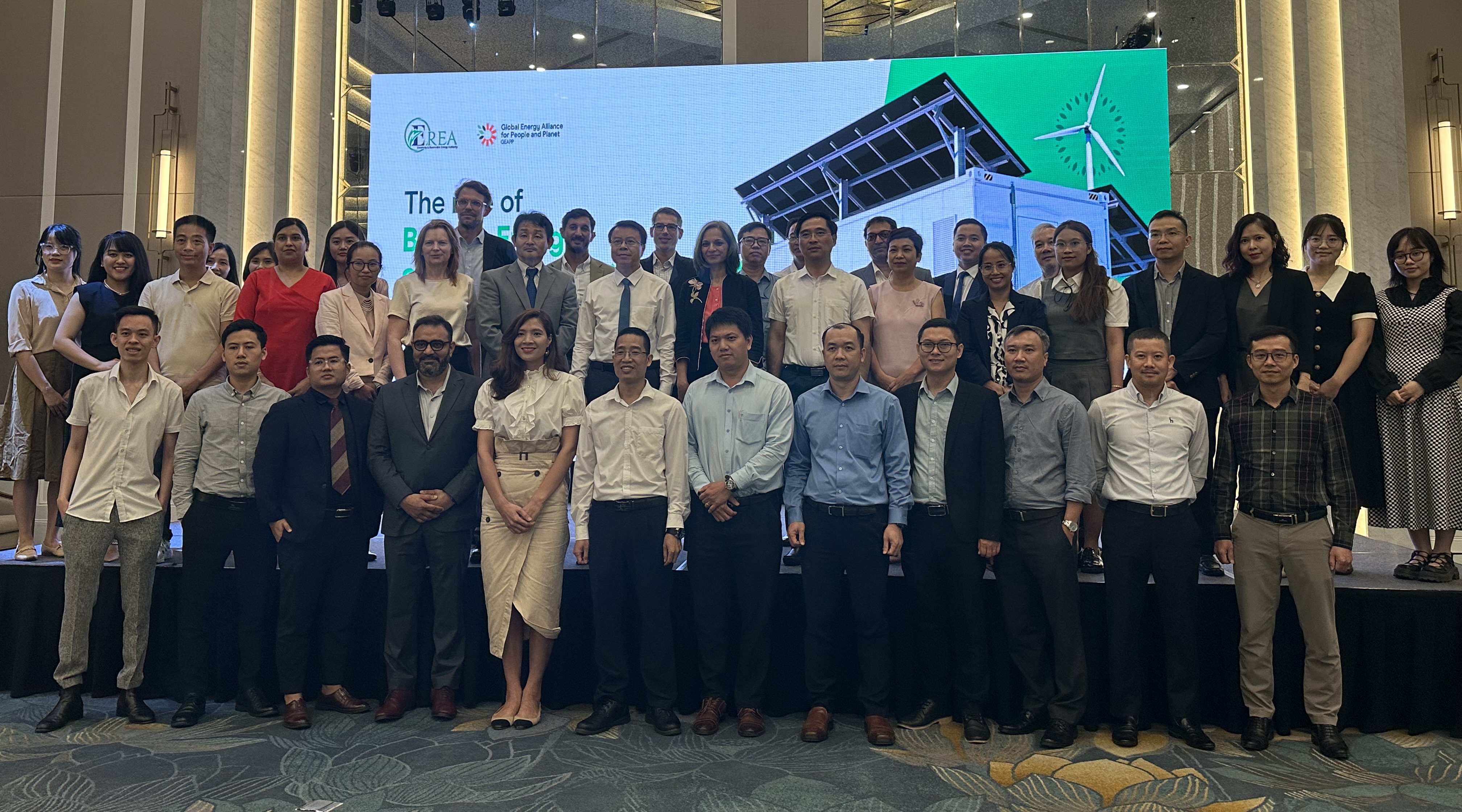Vietnam is the fastest-growing energy market in Asia, according to the International Trade Administration. The government anticipates a 10-12% annual surge through 2030 in the nation’s power consumption. This rapidly expanding energy demand presents a significant challenge to Vietnam’s transforming energy landscape, especially considering the urgent need to reduce global emissions and utilise renewable alternatives. The variability of renewable energy sources, combined with the increasing demand often results in unreliable supply and frequent power shortages.
Battery Energy Storage Systems (BESS) play a pivotal role in addressing these challenges by minimising the intermittency of renewables, enhancing grid flexibility, and ensuring reliable power supply. In a significant development, Vietnam Electricity (EVN) has secured approval for its first pilot BESS project with a capacity of 50 MW/50MWh. This project, developed by Vietnam Electricity (EVN) in collaboration with the Asian Development Bank (ADB), Rocky Mountain Institute (RMI), Global Energy Alliance for People and Planet (GEAPP), and the Vietnam Energy Institute, marks a crucial step towards Vietnam’s target of developing 300MW of energy storage by 2030, as outlined in the latest Eighth Power Development Plan (PDP 8).
An Overview of the BESS Pilot Project: The Scope and Applications
The development of a 50 MW pilot BESS by EVN was approved by the Prime Minister under Decision no 1009/QD-TTg on the ‘Scheme for the Implementation of the Political Declaration on Establishing the Just Energy Transition Partnership’. The pilot BESS project aims to create an ecosystem that supports the development of robust infrastructure, the introduction of policy reforms, and collaboration important for a smooth transition to clean energy sources.
Regulatory roadblocks, technical challenges, investment risks, and limited operational experience posed significant challenges during the project design. The core project team showed remarkable adaptability in addressing these challenges. To ensure compliance with the existing law and policies, legal experts were consulted to examine the relevant regulatory frameworks. Further, extensive research and analysis were conducted to expand the available knowledge regarding operational technological aspects.
As a result, the pilot project is designed to provide ancillary services such as frequency control and peak shifting to resolve power shortages, maintain renewable energy capacity, and minimise investment pressure by supporting self-sufficient transmission grids.
The implementation of this pilot project will provide practical insights into how BESS operates within the Vietnamese Power System. These insights will help overcome operational ambiguities, enabling policymakers to design more relevant policy frameworks, reduce investment risks, institute technical standards, understand pricing mechanisms, and foster innovation.
Leveraging the Potential of BESS
BESS emerges as a critical enabler in Vietnam‘s transition towards a future of energy efficiency, security, and sustainability. By storing surplus energy during low-demand hours and utilising it in times of high demand, BESS eliminates power shortages and blackouts, thus enhancing the reliability of the grid and reducing electricity costs. Improved grid stability also implies a reduction in the variability of renewables, facilitating their integration into the grid. This reduces the dependence on traditional energy sources with high emissions while encouraging efficient energy use.
In an effort to facilitate the integration of BESS into Vietnam’s power grid, the Electricity and Renewable Energy Authority (EREA) of the Ministry of Industry and Trade recently hosted a technical workshop in collaboration with GEAPP. By bringing together multiple stakeholders and industry experts, the workshop provided a platform for discussions and exchange of valuable insights on various aspects of BESS integration, such as available technologies, financing mechanisms, policy regulations, and cost considerations. The significant role of 50 MW BESS in Vietnam’s power infrastructure was further highlighted by the launch of the report “Enhancing Vietnam’s Grid Stability with BESS”, co-authored by the Institute of Energy (IE) and GEAPP. The report presents a comprehensive analysis of the challenges in frequency stability in Vietnam’s energy market and practical solutions for addressing these challenges through reforming the economic and policy framework and expanding BESS deployment. The study found that with 50 MW BESS, the frequency nadir improved from 48.95 Hz to 49 Hz.
The deployment and maintenance of BESS will generate job opportunities in the manufacturing, supply, installation, and other related sectors. Government support through policy reformations, training and upskilling programs, well-planned roadmaps, awareness campaigns, and other initiatives can further attract private investment and international support.
Emulating Vietnam’s Strategic Approach to Energy Storage
Vietnam’s innovations and recent developments in the energy sector emerge as an inspiration for the global drive towards a cleaner and more sustainable future. The nation’s strategic approach to energy storage exemplifies the significance of collaboration, blended financing, and aligning initiatives with national plans.
Vietnam banked on the expertise of various stakeholders including policymakers, industry experts, financial institutions, and philanthropic alliances for the creation of the pilot project. This network will continue to support the project’s implementation. The collaborative spirit also manifests in the financial structuring. The project’s financing model combines diverse sources—equity from EVN, non-sovereign or sovereign loans from the ADB and others, grants from JETP, and contributions from philanthropic partnerships. The application of blended finance mitigates financial risks, promotes innovative solutions, and draws investments for large-scale projects.
To scale energy storage initiatives and ensure long-term commitment, Vietnam integrated the BESS pilot project into its national energy transition framework by aligning it with the Implementation Plan of PDP8 and the JETP Scheme. Vietnam’s experiment sets a global example, inspiring other countries to advance their own energy transition goals effectively.

Enhancing Vietnam’s Grid Stability with BESS
This study analyses and anticipates the challenges that may arise in frequency stability in Vietnam’s power system by 2030, when the renewable energy integration is expected to increase, with the objective to gauge the scope of averting these challenges with Battery Energy Storage System (BESS).
The pilot BESS project would bring forth valuable insights and data on BESS operation for various grid services, critical to reforming the regulatory framework, developing competent technical standards, and designing innovative investment mechanisms to eliminate the current roadblocks in BESS uptake. Further, with an estimated reduction of 23,717 tons of CO2 during its lifecycle, the project makes a significant contribution to Vietnam’s energy transition goals.
By leveraging innovative solutions and collaborations, the project contributes to diversifying the nation’s energy portfolio while accelerating the transition by improving grid stability, mitigating power shortages, and facilitating renewable energy integration. Vietnam is advancing its energy infrastructure towards a greener, more just, and energy-efficient future, simultaneously providing a valuable model inspiring the global drive towards an energy-resilient future.






